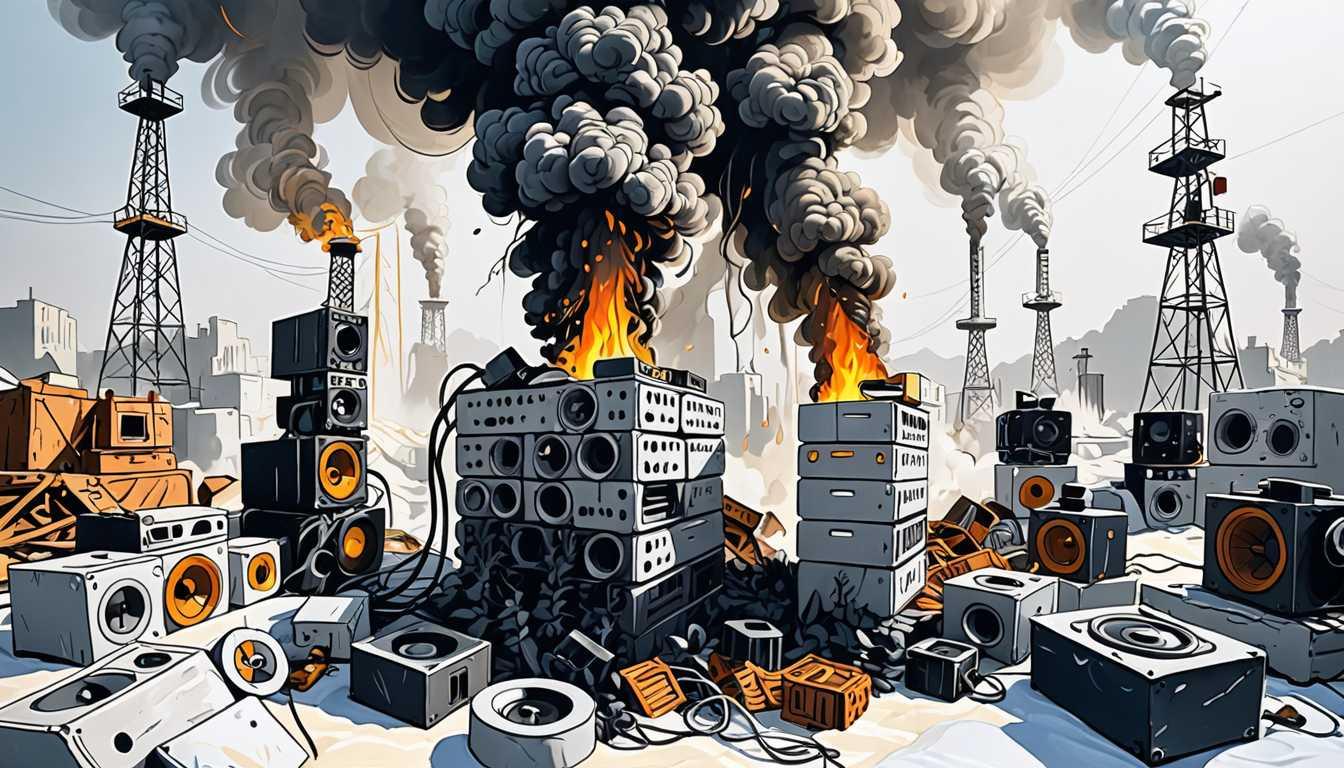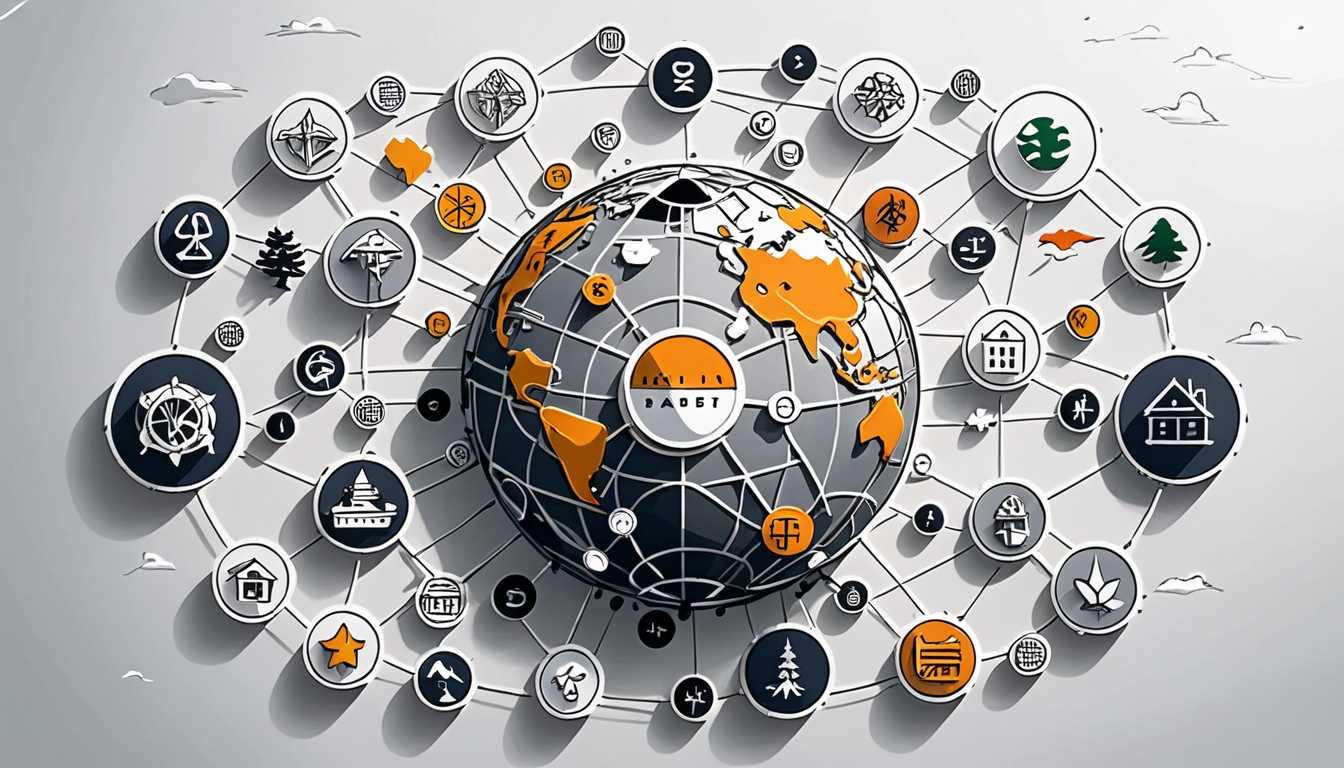Exxon's Climate Contradiction: Science vs. Public
January 2023
Harvard Magazine
Introduction
Dive into the shocking revelation from Harvard Magazine's "Documenting Climate Change Deception" where it's uncovered that ExxonMobil's scientists were climate change prophets in lab coats, accurately forecasting global warming's grim future from 1977 to 2003. Meanwhile, their execs played a game of doubt in public. This eye-opener study, decked with memos and peer-reviewed papers, shows the stark contrast between the company's private knowledge and public denial. A must-read for anyone intrigued by the blend of science, deception, and the quest for truth.
READ FULL ARTICLEWhy It Matters
Discover how this topic shapes your world and future
Unveiling the Veil of Climate Mysteries
Imagine holding a secret that could change the way the world operates, impacts how we treat our planet, and even influences global policies. Now, imagine keeping that secret while publicly denying its truth. This is not a plot from a sci-fi movie; it's a real scenario that unfolded over decades with ExxonMobil at the center. The company's scientists made precise predictions about global warming, even better than some independent models, while its public stance sowed doubt about climate change. This tale of dual realities not only raises questions about ethics and responsibility but also highlights the intricate dance between science, industry, and public policy. Understanding this story helps us see the complexity of climate change, the power of information, and the importance of transparency. It's a call to critically evaluate the information we receive and to understand the broader implications of our actions and the actions of those around us on the global stage. For you, it's a chance to dive into a real-world saga where science fiction meets scientific fact, and to ponder how you might contribute to a more informed and honest discussion about our planet's future.
Speak like a Scholar
Climate projections
Predictions made by scientists about future climate conditions based on current data and trends.
Greenhouse gases
Gases in Earth's atmosphere that trap heat, leading to global warming and climate change.
Global warming
The long-term heating of Earth's climate system observed since the pre-industrial period due to human activities, primarily fossil fuel burning, which increases heat-trapping greenhouse gas levels in Earth's atmosphere.
Ethics
The branch of knowledge that deals with moral principles, guiding our actions and decisions about what is right and wrong.
Transparency
The practice of being open, honest, and straightforward about various activities, ensuring accountability.
Public policy
The principles, often unwritten, on which social laws are based. In the context of this discussion, it relates to how governments address issues like climate change.
Independent Research Ideas
The psychology of denial in environmental issues
Explore why individuals or organizations might deny climate change despite overwhelming evidence. Investigate the psychological mechanisms behind denial and its impact on public opinion and policy.
Ethics and responsibility in scientific communication
Examine the ethical obligations of scientists and corporations in sharing their findings with the public. Consider case studies where transparency could have significantly impacted public policy or awareness.
The role of corporate influence in climate policy
Investigate how companies with vested interests in fossil fuels have shaped climate policies over the decades. Analyze the balance between economic interests and environmental protection.
Comparative analysis of climate models
Conduct a study comparing the accuracy of various climate models, including those developed by corporations like ExxonMobil, with independent academic and government models. Discuss the implications of model accuracy on policy and public perception.
The impact of misinformation on environmental action
Explore how misinformation campaigns, like those suggesting doubt about climate change, affect public support for environmental initiatives. Consider strategies to combat misinformation and enhance public understanding of climate science.
Related Articles

Bitcoin Mining: A Carbon Footprint Crisis
November 2024
LSE Business Review

Coffee Pods: Not So Guilty?
January 2023
BBC

Oceans: The Next Climate Saviors?
February 2023
Scientific American

Voluntary Carbon Markets: Hype or Hope?
October 2024
LSE Business Review

Carbon's True Cost: A Climate Wake-Up
September 2022
UC Berkeley